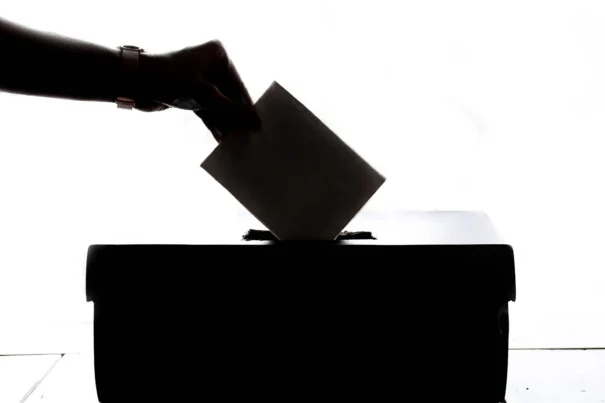
Photo by Element5 Digital
The divide between young men and women’s political preferences are growing at unprecedented rates. While this divergence, coined “the gender gap” by founder and President of the Feminist Majority Foundation Eleanor Smeal, is not new, older generations have not witnessed as striking a contrast between men and women voters. Young women see Harris as a beacon of hope to address the issues they care most about, supporting her by 70%, according to the Harvard Youth Poll. Young men are supporting Harris at 53%. Smeal says this 17% difference is larger than she has ever seen. The gender gap is now more of a “gender chasm.”
The rising gender gap is partly attributed to the political issue priorities of each sex. According to Brookings Institute, young women prioritize solutions to “sexual harassment, domestic violence, child abuse and neglect, and mental health problems,” whereas men are most concerned with “competition, bravery, and honor.”
The gender divide may consequently decide the election. According to exit polls from the 2022 midterms and the 2020 presidential election, young voters were significant in determining Democratic wins. In an election where issues such as reproductive health, LGBTQ+ rights, sex discrimination, education, and the protection of immigrants are on the line, it is more critical than ever to ensure female voters’ voices are heard.
Gen Z women have become the most progressive group in U.S. history. In the last eight years, events such as Trump’s campaign victory, the #MeToo movement, and the Dobbs decision became critical turning points for many young women. Since they are most affected by these matters, young women have turned towards more liberal policies and candidates that would speak to their concerns. These voters are supporting candidates that have championed these issues – who have been more outspoken about reproductive rights, bodily autonomy, and affordable healthcare, broadening advocacy for women’s issues and consequently energizing young women.
This could be game changing, as young women are considerably more likely to vote than young men. In the last presidential election, 52.5% of women ages 18-29 voted, while only 47.5% of men in the same age range did, according to the U.S. Census Bureau. Young women are also shown to be more politically engaged. Since young voters have been significant in the outcome of past elections, this difference in voting could mean that Gen Z women will have substantial power in November.